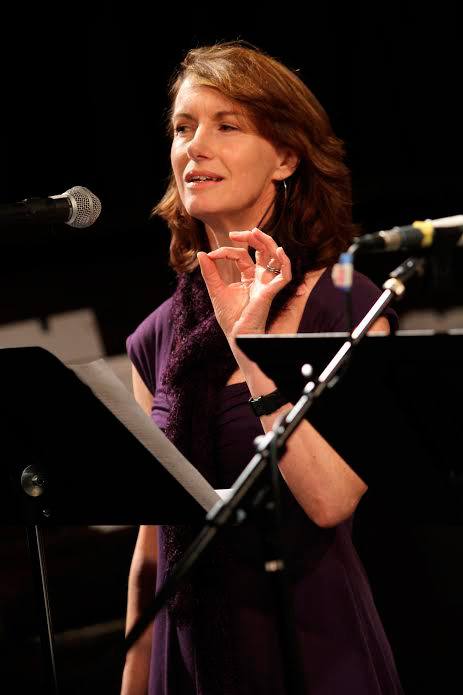Elizabeth Austen jokes that her mid-life crisis came a little early.
Nearly 20 years ago, the Shakespearean trained actor and former thespian put down her stage makeup and picked up a pen, trading her acting and dance theater career for the life of a poet.
In February, 2014, Austen was appointed Washington State’s poet laureate and is in the middle of serving a two-year term.
Austen has committed to reading poems and leading workshops for aspiring poets and poetry lovers in all of the state’s 39 counties. She travels to schools, libraries and arts centers to share her work and that of fellow Pacific Northwest poets.
“What I’m trying to do is give people who maybe are poetry-curious an experience of poetry that is engaging and relevant to their lives and hopefully some tools to explore poetry a little bit further on their own,” she said.
Austen will be in Langley next week to share some of her poetry and discuss her book “Every Dress a Decision.” Afterward, Langley resident and Seattle Times columnist Val Easton will interview Austen.
The show begins at 7:30 p.m. Friday, Jan. 9, at Whidbey Island Center for the Arts. Tickets cost $15.
The following day at 10:30 a.m., Saturday Jan. 10, Austen will lead a poetry workshop, which is “designed to engage participants’ imaginations, life histories and sense of empathy through language,” according to a recent press release. The class will include a reading of a few contemporary poems, one of which will be selected as a model for class participants to write their own first drafts. No previous writing experience is necessary.
The cost of the workshop is $30.
Austen’s “intuitive decision” to leave her theatre career and devote her creative energy to writing was catalyzed in part by the unexpected death of her brother. Her extensive performance training and expertise lent her a deep understanding of poetic language, both in its written and oral forms. Writing acted for Austen as a sort of vessel through which to access and address her subconscious and the world around her.
Since childhood, Austen had sought to express herself through ritual language. Reared in a devoutly Catholic household, she recalled that many of the first poems she memorized were prayers, inspiring her earliest writing to mirror the voice and tone of Biblical verses.
“I fell in love with the possibility that language could be so powerful that it could change bread and wine into the body and blood of the savior,” she said.
Though she noted that she is no longer religious, poetry has become for her adult self what religion was for her as a child.
Many of her pieces are reflective. Some are a means of restitution, said Austen, for past wounds. Others are an outraged response at injustice or inequality. Several, including one of her most famous, “The Girl Who Goes Alone,” are about courage, either physical or emotional.
“The girl who goes alone says with her body ‘the world is worth the risk,’ ” the poem concludes. The piece, Austen said, is about the ways in which girls are conditioned to fear being alone, whether on a hike through the wilderness or in the world in general.
“It was inspired by a desire to reclaim the ability to go out and make our own way in the world and not have certain doors closed to us because we’re women,” she explained. “It’s also trying to grapple with the way I, as a woman, have had to internalize some of those messages.”
Of “The Girl Who Goes Alone,” Easton asserted that it is essential reading, or listening, for every woman.
“Her poems are almost like a speaking voice,” said Easton, in an telephone interview with The Record. “It’s like she’s talking directly to you in her poetry so you can understand it both as the words you hear and on a deeper level.”
Easton first saw Austen read at a local church last spring and said she was impressed by Austen’s commanding stage presence and vulnerability.
Easton added that she is also a big fan of the title of Austen’s book, “Every Dress a Decision.”
Austen explained that the title is inspired by the idea that women, and to an extent men, are treated and perceived vastly differently based upon the way they present themselves to the world.
“Poetry brings up core issues. The subject of poetry is often [things] like loss, like spiritual yearning, like our sense of injustices,” said Austen. “I end up having conversations with people about what it is to be human.”
In addition to her work as poet laureate, Austen has been leading workshops for the staff at her workplace, the Seattle Children’s Hospital, for about five years. The classes are a means of allowing care providers to express and care for themselves.
“That’s what convinced me that people are hungry for what poetry offers them,” said Austen. “A lot of people just don’t know how to access it.”
For more information on Austen and her works, visit http://wapoetlaureate.org.



